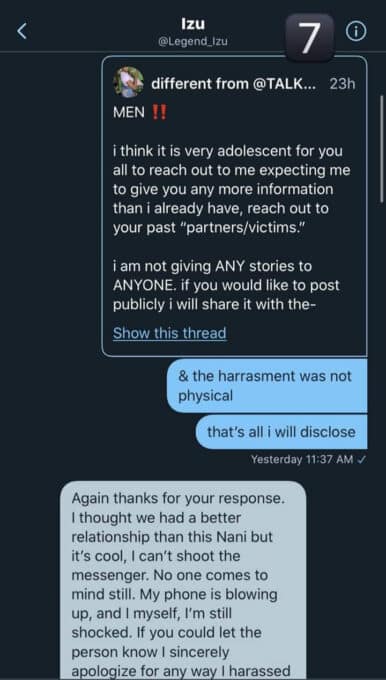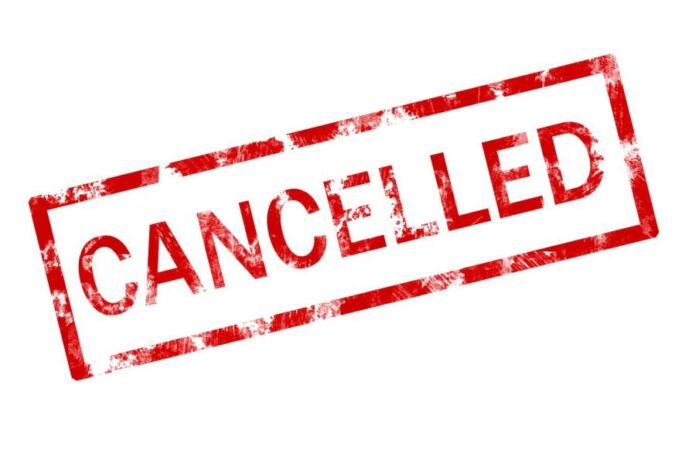Ladies and gentlemen, there is a new culture in town. It is called cancel culture.
If you are on the internet, especially Twitter, then you would have seen celebrities, or public figures being called out over well… anything. This is usually followed by people giving their unsolicited and unfiltered opinions.
Twitter has now become the town square where people are judged, punished, and mercilessly dragged for mistakes that may or may not be innocent.

This phenomenon is known as cancel culture.
What is cancel culture?
Cancel culture, also known as call-out culture, is a virtual form of disgrace and banishment. Carried out on social media, it is a way of stripping a person of public respect, validation, or power for behavior deemed unforgivable by the masses or whoever has the loudest voice backed by the highest likes on Twitter.
Cancel culture is a way of taking away someone’s power or withdrawing support from them because of views that you deem to be disrespectful or offensive.
Usually, when a person cancels someone, it would mean that they alone withdraw support from the person. However, with cancel culture, everyone takes a stance against the accused.
And if you don’t, you stand a risk of being canceled as well.
Origin of cancel culture
Cancel culture started with brands dropping celebrities or ambassadors with views that do not align with the company’s values.
But now, it has been taken to the streets. Everyone is canceling anyone whose views do not align with theirs.
You support Balablu? Yes – Cancelled!
You pour milk before cereal? Yes – Canceled!
You think Layi Wasabi is not the GOAT? Yes – Personally, I cancel you!
These days people are getting canceled for the slightest things, and Nigerians are not exempt. Some are unfollowing family members on social media, blocking them and barely tolerating them in public.
They can even go as far as tweeting stuff like “I lost my aunt today, no she didn’t die, she just said peanuts are better than groundnuts”. Brother pleaseeeeeee.

While we have had some genuine reasons to cancel some people, cancel culture has really become trivialized. There is no space for personal opinions because everyone has to walk on eggshells for fear of canceling.
Now, we have no original opinions because Ajebo with 30k followers will decide you have said rubbish, and his followers will attack you.
Cancelling started as a call to accountability, but these days, it is wielded as a weapon to silence anyone who might have a different opinion from the general consensus.
And who defines what is generally acceptable? That topic is for another day.
READ: Funeral Cultures in Nigeria
Effect of cancel culture
In Nigeria today, cancel culture has stifled people’s opinions. It has forced people to live in denial as a way of self-preservation.
The fear of getting called out has pushed many people to just follow popular opinion. And as a society, isn’t it abnormal if all heads are turned the same way?
Cancel culture today fits into the theory of ethnocentrism, which refers to the thinking that one group is superior to others. This can be marginally unhealthy for any society, as we will then only be able to effectively relate only with people who think like us.
Cancel culture limits freedom of speech
Our society should be one that promotes the freedom to choose and speak about your values, beliefs, thoughts, and ideas. Cancel culture limits the freedom of original opinions as people’s diverse perspectives are not welcome.
However, this does not condone hate speech, slander, libel, or anything of that sort.
SEE: Voodoo In Nigeria
Cancel culture disregards opposing opinions
A successful society is one in which members engage in higher-level reasoning and critical thinking.
We do not need to agree on everything. However, we should be able to respect each other enough to have an open discussion about the experiences that shaped our beliefs.
SEE ALSO: Naijanomics: What it is, and How to Know if You’ve Been Infected
Fear of sharing differing opinions
This might be the worst of the effects. Cancel culture has created a fear of sharing opinions. The fear of being tagged or labeled incorrect has forced many to swallow their thoughts and these popular opinions are left unchecked.
Some of these thoughts and opinions are formed off selfish beliefs and we just let them fly out there because there are no opposing views.
Cancel culture has changed narratives
As much as we are highlighting the effects of cancel culture, it is only fair to point out the good that has come from cancel culture.
We cannot deny that cancel culture has given a voice to marginalized groups in society. Even more, it has proven to be a great tool for seeking redress and accountability from respected individuals in society.
From calling out racist or s3xist comments, to serving justice to those denied, the power of this virtual witch hunt has proven effective time and again.
So many issues in society have been brought to our global town square, discussed and trashed. Cancel culture has addressed deep imbalances between the privileged and the underprivileged.
To a large extent, it has addressed these issues and driven social change.
READ: Vanity Plates in Nigeria: For the Big Boys Alone
When does it get too much?
In recent times, we have witnessed famous people getting canceled on social media for having opinions that are contrary to what the public deems as right.
But is it really that simple? Are opinions really black and white? Can we not achieve change without limiting freedom of speech? Without staining the amazing achievements past generations obtained with long and painful fights?
Using the #MeToo movement as a case study, it is difficult to criticize cancel culture for its effectiveness. Especially since the court of public opinion appeared to be the last hope for justice for these women after the judicial system and the protection system at their place of employment failed them.
The movement fished out s3x offenders, especially in the entertainment sector, but like a wave, it swept away some innocent souls as well.
A good example is the case of Izu Madubueze, a young man falsely accused of rape by a Twitter influencer, Nanichi Anese. The latter posted Izu’s pictures on Twitter, accused him of rape, and refused to give further information.
At the time, it was revealed that Izu reached out to Nani and asked to know who he raped, but she didn’t have a good answer. Instead she claimed the accuser wanted to remain anonymous.
She later said the alleged victim said it was a “non-physical s3xual assault”.

Izu took his own life a few weeks later, after losing business deals and suffering ostracization on every side. Nani, on the other hand, deactivated her account after Izu’s suicide story broke.
This is just one case.
One could very strongly argue that the justice system is ineffectual but the question here is: if we decide to bypass the legal system because it is ineffectual, can we substitute it with one built by a culture that does not consider forgiveness, reviews, and reconsideration?
With proper investigation and research, we could have gotten to the bottom of Izu’s story. Instead, we opposed the lawful status of “innocent till proven guilty” and instead practiced “guilty till proven innocent”.
SEE ALSO: Jungle Justice In Nigeria: When The Mob Rules
What then can we do?
Avoid assumptions
The guilty till proven otherwise stance on Twitter must be checked. There are always more sides than one to the story. If we want to be honest these days, nobody’s truth is absolute.
Create protocols
We truly cannot deny that cancel culture has helped right so many societal wrongs. Therefore, we cannot totally rule it out.
What we can do instead is create a protocol where issues brought to the virtual town square can be properly investigated. As opposed to immediate condemnation.
READ: Transgender in Nigeria -Is it just for the money?
Punish false offenders
For this, it is best to work with the law. In most cases where cancel culture yielded positive results, it was always in conjunction with the law. False accusations should be punished according to the provisions of the law.
This will discourage the evil spirits in some people from manifesting.
In conclusion…
We cannot cancel cancel culture (I didn’t do that on purpose, I swear. Please don’t cancel me).
First, it is nigh impossible to contain people’s opinions on the world wide web. Secondly, cancel culture has helped right a lot of societal wrongs and brought speedy justice that may not have been possible if left only to the hands of the law.
However, what we can do is ensure justice on all sides by putting protocols in place. The truth is, no truth is absolute. Therefore we must do our best and stick with the law of ‘innocent till proven guilty’.





